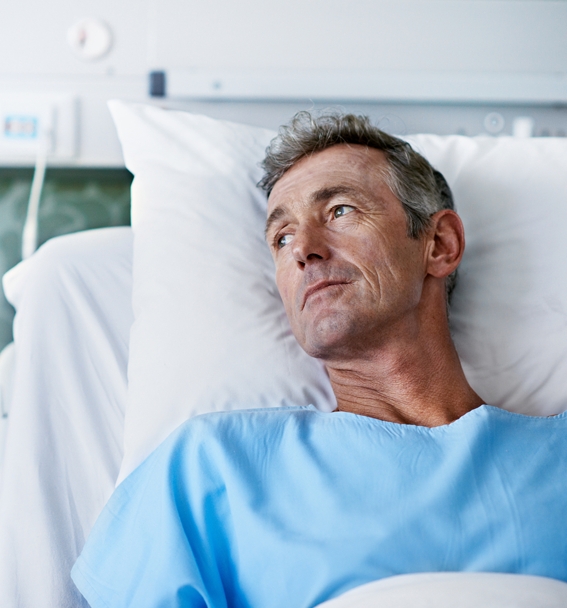
Recovery after heart surgery
The first phase of heart surgeries recovery lasts about six to eight weeks. Following your release from the hospital, there are some specific instructions that can help you to quicken your recovery process. If you follow the instructions you will be healed physically faster than your expectations.
You have to be careful with your wounds. Try to keep the area of the cut your surgeon made clean and dry. You have to be able to take a bath within a few days. For washing the cut areas, use water and soap only. Your diet is very effective in your healing process and you should try to have a healthy diet. There are some red flags that are the signs of an infection. Call your doctor immediately if you have any of these including:
More drainage or oozing than usual
Edges pulling apart
Redness or warmth around the cut
Fever greater than 100 F
your breast bone feels like it shifts, or if it pops or cracks when you move
As it's clear heart surgery is a type of major surgeries and due to this, your doctor will prescribe painkillers before leaving the hospital. Some discomfort signs like itching, tightness, and numbness along the incisions are completely normal. The discomfort feels should not be very much especially it should not hurt as much as it did before your operation. In bypass surgeries, the surgeon may use the veins of the leg as grafts so you may feel the pain in your legs much more than your chest. The soreness and stiffness will fade with time. Having daily activities and gentle exercises will help your discomfort feeling and stiffness in your legs.
For the first 6 to 8 weeks, gradually build up your activity, such as doing household chores. In general, your surgeon may recommend:
Don't stand in one place longer than 15 minutes.
Don't lift things that weigh more than 10 pounds.
Don't push or pull heavy things.
Walk every day.
Follow the guidelines the doctor or cardiac rehabilitation specialist gives you.
Based on your situation and the type of your surgery after surgery, your surgeon may let you know when you can drive again. If your incision is a small cut and your rehabilitation will be very well this process will be sooner than expected. There's no need to wait to ride as a passenger.
The healing process will be helped by having a healthy diet. According to your situation, your doctor may recommend you to have or avoid specific things. Here are eight of the items on cardiologists list that they recommend to avoid:
Bacon, sausage, and other processed meats. Hayes, who has a family history of coronary disease, is a vegetarian.
Potato chips and other processed, packaged snacks.
Dessert.
Too much protein.
Fast food.
Energy drinks.
Added salt.
Coconut oil.
Having a poor appetite following your surgery is something normal. At first try to have smaller meals, more often. Your appetite should come back in a few weeks. If it doesn't, bring this up with your doctor. Make note of these 9 superfoods that can help to heal your wounds :
Turmeric.
Milk.
Nuts.
Chicken broth.
Berries.
Vegetables.
Healthy fats.
Eggs.
Having some emotional feelings like being sad or blue for a few weeks following the surgery is normal and it will be passed. If these feelings last talk to your doctor about them.
Some tips which may help you to keep your spirits up :
Get dressed every day.
Walk daily even for short periods.
Pick up your hobbies and social activities.
Share your feelings with others and talk about your emotions.
Get a good night's sleep and a healthy lifestyle.
Limit visits to 15 minutes at first. As you feel stronger and less tired, spend more time with your visitors.
Join a cardiac rehabilitation program or a support group.
If spiritual matters have been an important part of your life or the life of your loved ones, it is important to provide opportunities for spiritual experiences, even if you can't attend religious services. Some suggestions may help you include:
Read passages from religious books.
Arrange for a religious leader to visit.
Play traditional music.
Watch religious services on television.
Continue meaningful rituals, such as prayers before meals.
Enjoy a sunrise or sunset together.
Pray together.
Sing familiar songs.
Use services and liturgies that the person remembers.
It's better to remind you many patients have trouble with sleep after their heart operation. You can get back to a normal slumber pattern within a few months. Sometimes the trouble is about pain and the pain feeling doesn't let you sleep. In this situation take painkillers about half an hour before your bedtime. Arrange your pillows and bed so you can stay in a comfortable position. If you can not sleep be careful with consuming caffeine, chocolate, coffee, tea, and some sodas. You'll probably need to rest after activities, but try not to take a lot of naps during the day because it affects your night sleep.
You can get information about different aspects of cardiovascular surgeries on Ermateb's website. Try to read them before having heart surgery. If you have any questions or comments talk with Ermateb's professional experts who try to answer you as soon as possible.

